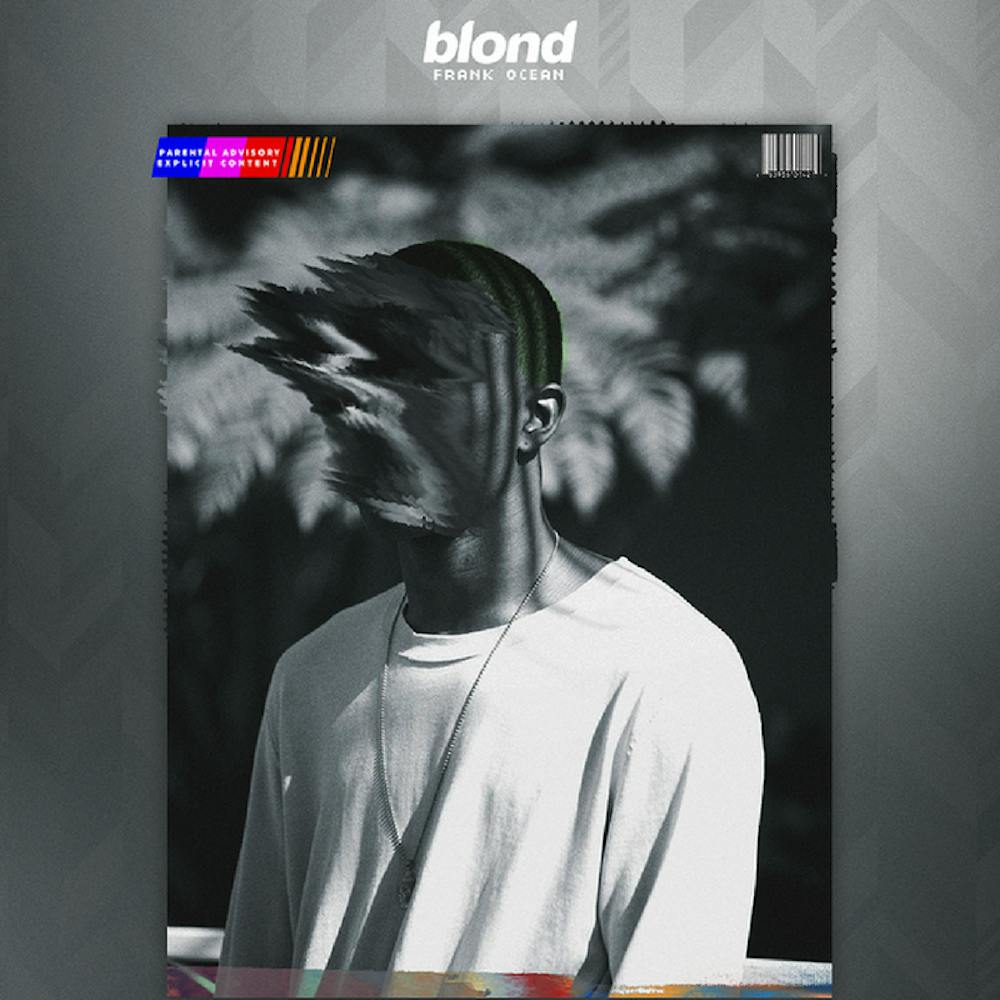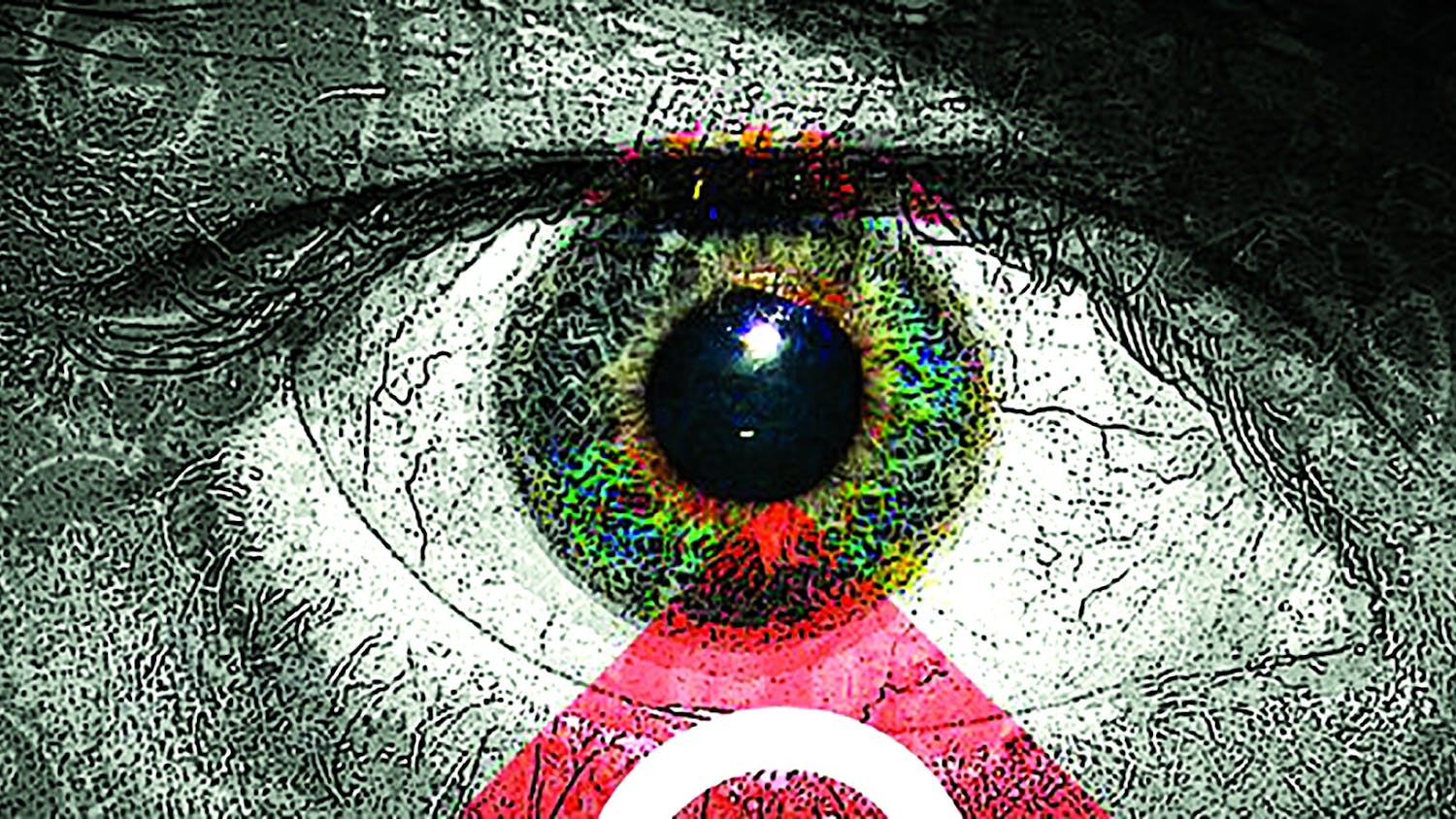The duality of man is a central theme in the music of Christopher Francis “Frank Ocean” Breaux, be it of lust versus religion:
"If it brings me to my knees
It’s a bad religion"
Or the coin of bisexuality:
"My guy pretty like a girl, And he got fight stories to tell,
I see on both sides like Chanel, See on both sides like Chanel"
Get content from The Daily Lobo delivered to your inbox
Or of one’s seemingly contradictory feelings of love:
"I could hate you now, It’s quite alright to hate me now,
But we both know that deep down the feeling’s still good"
No work of Breaux’s to this point accentuates and highlights these dualities better than 2016’s Blonde; note how the beat change in track nine, “Nights,” separates the album exactly in half.
Blonde was a very long time coming. In July 2012, Frank Ocean released his major label debut, what is considered by many, casual listeners and professional critics alike, to be one of the greatest albums of the 21st century thus far: Channel Orange. Receiving a huge amount of critical acclaim, it’s a dense, narrative, expansive lava lamp of an R&B record and, following up with a tour, he more or less disappeared off the map completely. He had promised that a successor to Channel Orange entitled "Boys Don’t Cry" (as an homage to the Cure song of the same name) be released in summer 2015, but 2015 came and went with no sign of Frank. His unreleased second studio album became something of a meme, and Breaux himself something of a legend.
All was quiet until August 2016, when Breaux set up a live stream of him building a staircase with music playing in the background, which eventually led to the release of a visual album, Endless. This was an ambient project curated purely for the sake of fulfilling a contract with Def Jam Records and allowing him to use his own independent label, Boys Don’t Cry, giving him greater control over his own music. The next day, August 20th, Frank dropped his proper follow-up to Channel Orange, Blonde, supported only by one lead single earlier in the day (the opener, “Nikes”).
The differences between Channel Orange and Blonde are readily apparent, almost serving directly to appease the aforementioned dualities present in Frank’s music. Orange is a warm, sexy, smooth love-making album; Blonde is a sad, atmospheric, spacious fetishising-your-own-sadness album. There’s a couple of important threads that weave the two works together, in Frank’s ingenious ability to craft beautiful, emotionally resonant recordings that reject the listener’s previous notions of songwriting while maintaining a perfect flow — and his gorgeously vivid lyrics, embellished with deeply personal storytelling.
The album begins with its single, “Nikes”. The record’s side-one-track-one lets you know exactly what you’re in for. Breaux utilizes pitch-shifting techniques on his vocals to play different characters – as though in a radio play – over chilling synth blankets that envelope Frank and, in turn, the listener. The song is purely electronic until the third minute of five, at which point the ambient effects make way for a lightly picked acoustic guitar before retreating back into the synths for the two-chord instrumental outro.
"He doesn’t care for me
But he cares for me
And that’s good enough"
“Ivy” is a meditative successor to “Nikes” that uses jangled, off-kilter, distorted guitar effects to create a longing sense of nostalgia, and regret. It’s a very soft, broken song; Breaux pines for a far-gone past when he and his lover “didn’t give a fuck”.
One area on Blonde where Ocean continues to shine is his breathtaking, truly poetic ability to use simple language to convey such deep and complex emotions. He rarely uses big words or says more than is necessary. Instead, he uses universally understandable phrases and dialect to create a greater impact on the audience than an in-depth, analytical thesis could ever come close to - to paint such expansive images in the listener’s mind. Lines like “I thought that I was dreaming when you said you loved me” or “you talk so much more than I do” or a saturated “I’ve been waiting on you all my life”. Breaux is a truly artful lyricist.
“Pink + White”, co-written by Pharrell Williams, is the album’s sole banger, a bouncy, piano-led breath of fresh air. But even as Blonde’s pop cut, it’s still a subtle, understated, emotional number — upbeat though it may sound. The percussion on this is so clear, so satisfying, there’s such a smack to those snares during the acoustic break. Beyoncé appears for backup vocals on the song, although she’s not immediately noticeable, and I’m fine with her being more of a background element than the focus. Frank is the centerpiece chandelier. It’s his album.
In fact, Blonde, despite only having one obvious feature later in the album, is star-studded. Kanye West has songwriting credits on “White Ferrari”, and Frank’s fellow Odd Future member Tyler, The Creator contributes to “Skyline To”; Vampire Weekend’s Rostam Batmanjlij produced a handful of tracks; Swedish internet phenomenon Yung Lean sings the final chorus on “Self Control”; and Radiohead’s own Jonny Greenwood arranged strings for “Siegfried”.
Following a brief interlude with the voicemail skit “Be Yourself”, Frank really showcases his vocal abilities like few other songs on the album with “Solo”. Produced and co-written by none other than James Blake, it’s a very soulful, ethereal track, accompanied by organ, wherein Breaux flexes his gorgeous falsetto with one of the album’s few choruses:
"It’s hell on Earth and the city’s on fire
In hell, in hell there’s heaven
There’s a bull and a matador dueling in the sky
Inhale, inhale, there’s heaven"
“Self Control” is absolutely heartbreaking. Frank, accompanied by lo-fi indie rock/“bedroom rock” guitarist Alex G, uses the same pitch-shifting effects showcased on “Nikes” on this devastating seventh track. The last minute and a half of the song is a near-transcendental experience, as a lush string section lifts Frank’s words into the heavens above.
The beat change in “Nights”, as mentioned above, splits the album into two almost exact halves. It’s a transition of great clarity; electric guitars frantically arpeggiate and explode before the feeling is flipped and draped over sorrowful piano chords and percussion that flickers like a light. “Solo (Reprise)” boasts the album’s only obvious feature, André 3000, who also appeared on Channel Orange’s “Pink Matter,” and he is certainly not put to waste. 3 Stacks, alone and unfiltered for just over a minute, delivers a flaming-hot Gatling gun-style verse that takes shots at police brutality, ghostwriters, and hypocritical women over speedy, shapeless, ever-shifting piano accompaniment that never quite seems to find its feet, instead making a frenetic attempt to travel everywhere and nowhere at once. There is a reason André is among the all-time greats; almost twenty years since his peak, he still spits like a flamethrower.
I hate to compare Radiohead to everything, and for everything to be compared to Radiohead — it’s done far too much as is, and we’re all sick of hearing about Thom fucking Yorke. However, Blonde can, in some ways, be compared to the band’s turn-of-the-century masterpiece Kid A. The most obvious reason for this is the emphasizing of atmosphere and texture rather than melody and rhythm. Both artists are made music that inhabits an entire world rather than a single room like both albums’ predecessors (Channel Orange and Radiohead’s OK Computer). Consider: very few songs on this record even feature percussion.
Blonde closes with “Futura Free”. The second half of this song features a juxtaposition of interviews, recorded by Frank and his brother as pre-teens, of the singer and his friends joking around and talking about their day-to-day lives, hopes, and dreams. It brings to mind, and puts in the spotlight, a secondary theme of the record; nostalgia and yearning for childhood. (Editor's note: a reference to Ocean's first mixtape - Nostalgia ULTRA?). Listening to these interviews, you can almost visualize Breaux sitting alone, watching the interview tapes in the dark. The gorgeously tender electronics that score this section pop up throughout the album during its skits, and they work no better on Blonde than on “Futura Free”.
Some may consider it self-indulgent, pretentious, melodramatic. I’ve seen it described, alternately, as “an hour-long jam session”, “artsy bullshit”, “autofellatio”, and “Frank continuing to feel sorry for himself”. Perhaps these critiques of Blonde are not entirely invalid. But if you’re looking for examples of exquisite live instrumentation, experimental studio trickery, and electronic production thus far, as well as a truly idiosyncratic modern classic, look no further.
C.J. Dennis is a writer for Daily Lobo Music. He can be reached at music@dailylobo.com






